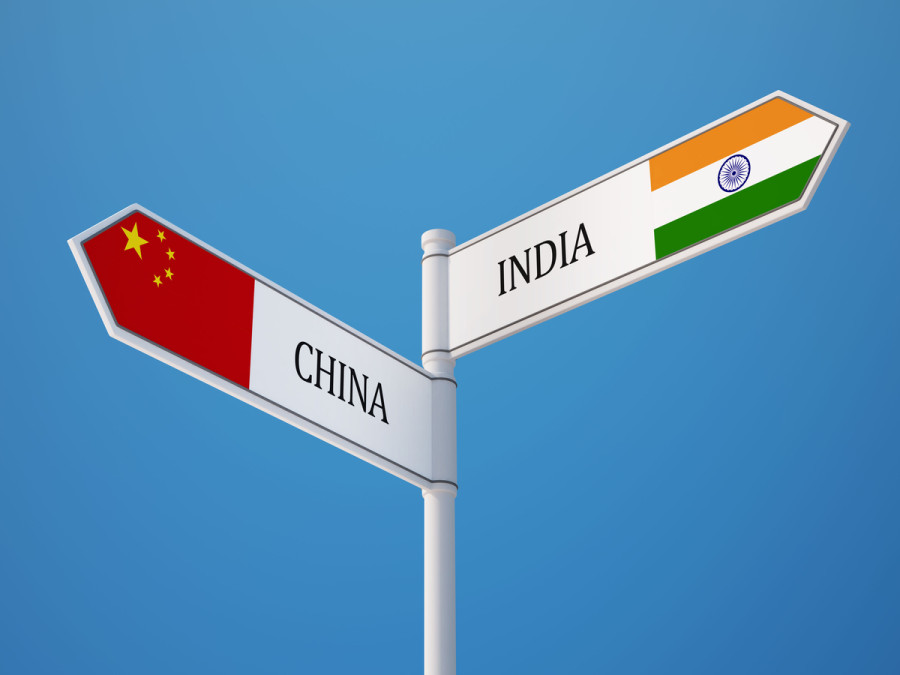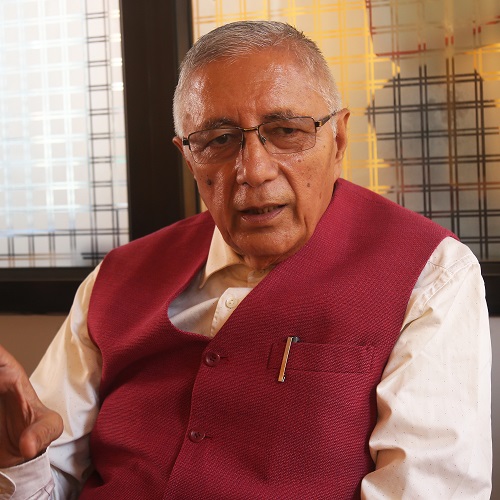Columns
There is no question of Nepal choosing a side
The resurgence of China and India brings great opportunities and new dynamics in our relations with them.
Dr Shekhar Koirala
Nepal-India, Nepal-China and India-China relations are basically independent. There is a reasoned need for each relationship, and each must be pursued on its own merit. That is, and should be, our fundamental position when we talk about Nepal’s foreign policy, particularly toward our immediate neighbourhood.
Nepal-India ties are pre-historic, intimate and multifaceted, covering a very wide-ranging area of cooperation. These relations were formalised with independent India in 1947 through the establishment of diplomatic relations. The number of treaties and agreements concluded between Nepal and India recognise each other’s complete sovereignty and territorial integrity. Engagement at various levels, including the exchange of high-level visits, has been part of the tradition of these age-old relations. Indian assistance has been instrumental in the socio-economic transformation of Nepal.
Regarding China, the White Stupa built by Nepali artist Arniko in Beijing in 1260 stands as a towering symbol of Nepal-China cultural relations that go even further back to the spread of Buddhism in Tibet. China entered into a new era after the founding of the People’s Republic on October 1, 1949 under the leadership of the Communist Party of China. Nepal and China formalised their ancient relations in 1955 through the establishment of diplomatic relations guided by the Five Principles of Panchasheel, including mutual respect for each other’s territorial integrity and sovereignty, non-aggression, non-interference in each other’s internal affairs; equality, mutual benefit and peaceful co-existence. Since 1955, Nepal-China relations have been widening and deepening in various areas of cooperation.
Political independence
Nepal zealously safeguarded its political independence even during the heyday of colonial rule in the neighbourhood. In 1950, the Nepali Congress Party, the torchbearer of democracy in Nepal, adopted a pragmatic approach in its foreign policy based on the geopolitical realities. The Nepali Congress working committee that met immediately after the success of the democratic revolution of 1951 demanded that Nepal establish diplomatic relations with the People’s Republic of China.
The Nepali Congress founding leader BP Koirala has written, ‘The Nepali Congress believes that our welfare lies in the peaceful progress of Hindustan, and that the welfare of Hindustan lies in respecting the independence of Nepal… We wish well of China. Our feelings toward China are that of honour. Particularly in view of the social and political experiments that are taking place there, we want our relations with that country to be more intimate’. The Nepali Congress, thus, rejected the policy of one-sided and unequal relations followed by the Rana rulers who looked upon the outside world through a British lens. Subsequently, Nepal followed a policy of expanding and diversifying diplomatic relations to highlight its independent identity and project its international image.
In the very first general elections held in 1959, the Nepali Congress emerged victorious with a two-thirds majority in the House of Representatives. BP Koirala was elected prime minister. During the 18 months of the Koirala administration, it established diplomatic relations with 17 additional countries. That process of expanding and diversifying diplomatic relations has continued, and the number of countries having diplomatic relations with Nepal today stands at 168.
At a time when the Western world appeared reluctant to engage with the People’s Republic of China, the then prime minister BP Koirala made a forceful plea in his address to the 15th United Nations General Assembly on September 29, 1960, to accept the People’s Republic of China as a respected member. He said, ‘The United Nations can neither become universal nor can it reflect the political realities existing in the world today until the People's Republic of China is given its rightful place in the Organisation’. He further said, ‘Until China is brought in the UN, the world body will not be able to fulfil effectively some of its most important purposes and functions’.
Nepal’s plea contributed towards creating a pro-China momentum inside the United Nations and outside. In 1960, BP Koirala told Premier Zhou Enlai, ‘Nepal-China friendship is of paramount importance for peace in Asia and world peace at large’. The foundation of Nepal’s engagements with modern China was laid by the Nepali Congress leadership. Successive governments have added bricks to this foundation towards erecting the edifice of current Nepal-China relations.
Resurgence of neighbours
The resurgence of China and India brings great opportunities and offers new dynamics in our relations with them. There are huge potentials for cooperation. Past experience can offer guidelines to transform Nepal’s relations with its neighbours in the 21st century.
India and China will have an enduring centrality in Nepal’s foreign relations. Nepal wants to maintain the best of relations premised on mutual trust, respect and dignity with its neighbours, and remain engaged with the wider international community, based on the principles of Panchasheel. Nepal follows a principled, pragmatic and balanced diplomacy, and judges every issue on its merits without ‘fear or favour’ in the pursuit of its own interest. It has been our longstanding policy not to allow any hostile activities from Nepal’s territory against our neighbours. Nepal stands ready to cooperate with its rising neighbours as the main pillars of the emerging global order, and remain constructively engaged with the wider international community. The only thing Nepal expects from them is their respect for its core concerns about its sovereignty and territorial integrity. This is indispensable to ensure Nepal’s stability and survival, and its contributions to the emerging international order.
Nepal pursues democratic pluralism at home and multi-polarity in international relations. We are aware that a rapidly shifting geopolitical landscape has brought about new challenges at Nepal’s doorsteps. The Covid-19 pandemic is accelerating these trends, exposing systemic vulnerabilities and political fragilities. One of the challenges in the post-pandemic world would be to keep unity in our diverse society, and maintain its social and cultural cohesiveness to ensure the country’s survival as an independent and sovereign nation.
Nepal can never ignore its geographical and historical destiny and realities. Any activity that goes against the spirit of pluralism and democracy is against the ground realities of Nepal. In foreign policy, there is no question of Nepal choosing one side against the other. We are fully aware that choosing a side would bring an unbearable heavy burden and unacceptable costs to Nepal, its immediate neighbours and the international community. A stable, democratic and prosperous Nepal would have a salutary and stabilising effect for peace and stability in the neighbourhood and beyond. A leadership with clear vision needs to steer the country through the emerging complexities of today.
***
What do you think?
Dear reader, we’d like to hear from you. We regularly publish letters to the editor on contemporary issues or direct responses to something the Post has recently published. Please send your letters to [email protected] with "Letter to the Editor" in the subject line. Please include your name, location, and a contact address so one of our editors can reach out to you.




 8.43°C Kathmandu
8.43°C Kathmandu















